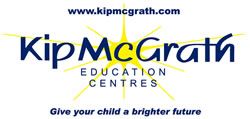BRAIN WORK IN JULY AND AUGUST
The summer holidays will soon be here and much as the prospect of two months off school may be an exciting thought for our children, as parents we need to be aware that during this time it is highly likely that almost total brain shut-down may occur!
Most teachers spend the first few weeks of September doing revision of the previous year’s work in order to get their class back into ‘thinking school’ mode. Of course our children need a break from the daily rigours of the classroom and homework but how do we ensure that they don’t forget everything they have learnt in the last couple of months at school and how do we make sure that we keep their brains ticking over.
Most children currently in Year 6 will be expecting to have to do some work over the summer holidays. Many will come home with practice papers and a list of English, maths and science topics which need to be revised. Make sure they set aside a few hours a week to do this as they will increase their chances of a better mark if they have taken the trouble to look over their work. Revising for exams in school will be a new concept for most Primary school children and they will need lots of encouragement to sit for an hour twice a week to do practice papers and then more again to do their revision. Rewards work well; try small regular ones given for a good week’s work or for doing revision without protest, and remember to give loads and loads of praise for effort! Help them by ensuring they have somewhere quiet to work and by being on hand to ask questions on what they have revised. Remember that the Transfer Test is the only exam they cannot repeat, so pull out all the stops to give them the best opportunity possible to achieve their full potential. If they are having problems with some aspects of their work, try to help. However, if this causes any tension or upset, get them help from a friend or a tutor; your child needs you for emotional support, not pressure.
This advice also applies to any pupils who are re-sitting their GCSEs. Summer is a tough time for these students as they have to work while many of their classmates are free to enjoy themselves, so try to be sympathetic if they are grumpy and find it difficult to concentrate.
It is not just Year 6 and GCSE students who can benefit from doing extra work over the summer. This can be a good time to sort out schoolwork problems for pupils of all ages, while at the same time keeping their brains active and in tune with what they have learnt in the previous school year. They will have no homework to worry about and many will have had a more relaxed day and so will not be mentally tired. Children who have been struggling to understand a topic or who have missed some school time through absence and have lost confidence, self esteem and motivation because they have fallen behind their group, or the rest of the class, will benefit from some extra help. Emotionally they will feel good because they will know that we, as parents, care and are doing something pro-active to help them, and educationally they will benefit from the extra time spent learning about and practising the things they find difficult. They should return to school in September with a more positive attitude and with their self- esteem restored.
If you feel that your child would benefit from extra help with their English, reading or maths, Kip McGrath Education Centre in Bangor offers tutoring for children aged 6 to 16. To arrange a free assessment or for more information, call Alan Morrison on 02891 859312.
County Down
RECENT NEWS POSTS BY KIP MCGRATH EDUCATION CENTRE - BANGOR IN BALLOO
BACK TO SCHOOL
The summer holidays are well advanced and school uniforms are appearing in the shops. The last weeks of the holidays will fly in and September will be here before we know it.READING - A MOST IMPORTANT SKILL PART 2.
CONTINUED - In our world of ‘techno-toys’ many children are not interested in sitting down quietly to read a book purely for enjoyment. This is a shame as reading helps them acquire the vocabulary and a feel for grammar and punctuation which will improve their own writing skills immensely. So how do we, as parents, set the stage to encourage in our children the desire to read?




